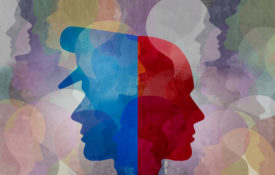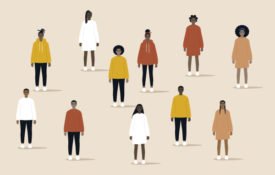-
Daniel Kahneman
Daniel Kahneman is a psychologist, winner of the Nobel Prize in Economics, and recipient of the Presidential Medal of Freedom. Daniel joins the Armchair Expert to discuss the complexity of human nature, studying judgment and decision-making, and his experiments involving loss aversion. Daniel explains that memories can play tricks on our minds when remembering experiences and how to avoid noise and bias in the corporate hiring process. Daniel recounts his childhood growing up in Nazi-occupied France and his encounter with an SS soldier, he breaks down decision hygiene, and how it relates to vaccines. ...
-

Expert Panel: Policing and Racism, Insights from Psychological Science
On May 21, APS convened a panel of experts on policing and racism. Here is a video and transcript of that event.
-

New Research Highlights Distinctions in White Audience Associations of ‘Black’ and ‘African American’ Label
A new series of studies to be published by Psychological Science show that White Americans associate the label “Blacks” with being targets of racial bias more than the label “African Americans.”
-
Jerome Kagan, Who Tied Temperament to Biology, Dies at 92
Prof. Jerome Kagan, a Harvard psychologist whose research into temperament found that shy infants often grow up to be anxious and fearful adults because of their biological nature as well as the way they were nurtured, died on May 10 in Chapel Hill, N.C. He was 92. ...
-
How COVID-19 is Changing Our Expectations for Other Vaccines
As scientists raced to create new vaccines that would fight the novel coronavirus, Matthew Motta had a question: What did Americans expect from these vaccines? Motta, a political scientist at Oklahoma State University who studies vaccine hesitancy, polled nearly 1,000 American adults on their expectations for the then-hypothetical shots.
-
How to Handle Your Re-Entry Anxiety as the Pandemic Recedes
A lot of people have been asking me the same question lately: How can I cope with my re-entry anxiety? Folks are worried about how to stay safe while socializing; how to discuss their comfort level with loved ones or manage pressure from others to do something they’re not yet ready to do; how to deal with other people they encounter when they’re out and about. Some are concerned that their lives will become too busy or frantic again. Many say their worry doesn’t even have a specific focus—it’s become an all-encompassing, global anxiety. ...

